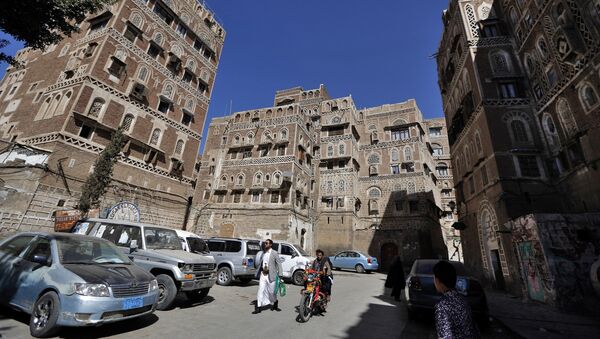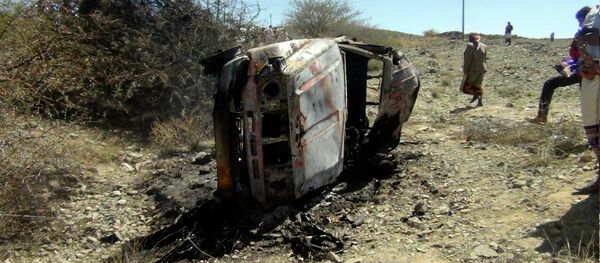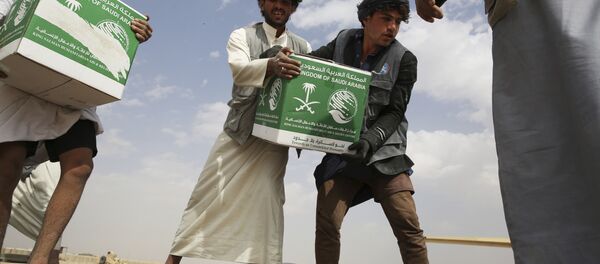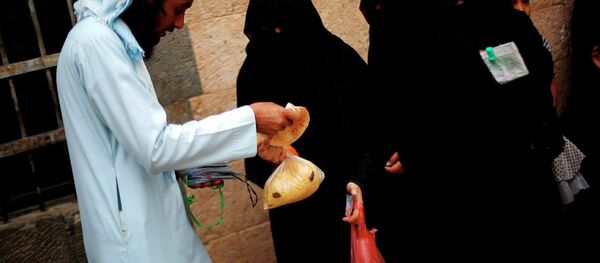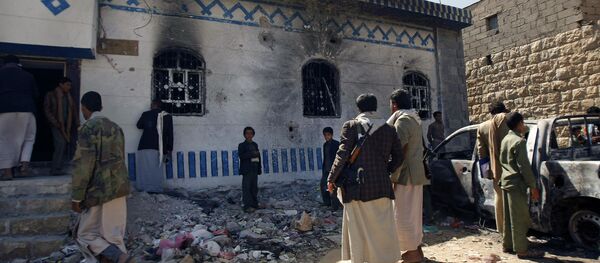Sputnik: In your last speech you mentioned that all Yemeni parties showed a big commitment to the Stockholm agreement, so what are the problematic points with its implementation?
Martin Griffiths: I had just this week, earlier this week, I was in Sanaa, and then in Riyadh. I met President Hadi in Riyadh and I met Elsayed Abdelmalek in Sanaa, both said exactly the same thing, that they firmly believe the Sweden agreement is a good one and they want to implement it. So that was incredibly encouraging.
I think the concerns are this: this is the first agreement that the two have made for more than two years, as you know. It requires a ceasefire across the whole governorate of Hodeidah, which has been the focus of battle for some months. That's hard to do, hard to switch off the battle in Hodeidah and yet in fact, as you know, generally speaking, it's holding.
So I think we're making progress and the Security Council [is] very much in consensus [and] came to the same conclusion. We're making progress, let's stick with it.
Sputnik: So is progress only being made in Hodeidah?
Martin Griffiths: No, I think that's a very good question. The exchange of prisoners, the release of prisoners is a huge deal in fact as agreed before Stockholm as you remember it then started working.
READ MORE: Parties to Yemeni Conflict Reject to Agree on Sanaa Airport Reopening — UN Envoy
We are hoping to have a meeting of that committee quite soon. They're exchanging lists to make sure they know who is where to be released and we're still hoping within this month, I hope, it [the meeting] was originally going to be about mid-January maybe slip a little but we'll get that day of prisoner release of hopefully thousands, doing this airlift exchange between Seiyun down the south in Yemen and Sanaa with the ICRC running it, it will be an incredible day, so we're still moving towards that.
Then Taiz; I said it to the council that this is incredibly important that we go beyond Hodeidah and both sides reconfirmed to me again this week that they're very keen to get that joint mechanism up and running, and I want to go to Taiz to be there when it starts.
Sputnik: The Yemeni foreign minister announced that the Houthis threaten this agreement on Hodeidah and the next steps of the Yemeni political process and the opportunity of peace in Yemen. Is it possible to ask the UN to include the Sweden Agreement under Chapter 7?
And I think they are doing that. The committee members are in Hodeidah, and they are meeting bilaterally with the general command of the UN, and I hope we will get operational plan for re-deployment in the next day or two. So… the parties are voluntarily committed to this, and they keep saying that they will do it, so we hope they will.
Sputnik: Russia has good relationships with both parties in Yemen. Did the Russian side make any initiative to help resolve the crisis in Yemen?
Martin Griffiths: Russia has its unique place, as you say. First, I have extremely close and continuous contact with officials of the Russian embassy in Yemen, Vladimir Dedushkin for example, who I see all the time when I go to Riyadh, and who, with the other members of the permanent members of the Security Council, the other five were very active in Sweden [with] helping to focus the parties on the agreement.
READ MORE: Yemen's Houthi Rebels Shoot Down Saudi Warplane Over Sanaa — Reports
So Russia is a full part of the process, and Vladimir Dedushkin is a very active ambassador, which is extremely welcome. And second, because Russia, as you said, has a pretty unusual role — it was the last embassy I think to be in Sanaa until it pull out after the events of early December [2017] — and Russia is listened by all parties, and that gives it a very special role, so that's why for me as a UN envoy, it's very important to come here to meet the Russian officials and Deputy [Foreign] Minister Sergey Vershinin, but to also have that kind of partnership with Russia makes a huge difference.
Sputnik: In your opinion, in which way can the countries with influence over both parties be involved in finding a political solution in Yemen?
Martin Griffiths: I think Yemen is a strategically important conflict, globally, which means it is not a minor local conflict. It's a dreadful conflict in the sense of the biggest humanitarian problem in the world, terrible suffering, but also as strategically important with a lot of interests in ensuring stability returns to Yemen.
What that means is we need to things at once: we need to do mediation with the Yemeni parties, which is my primary role of course to make sure the Yemenis make the decision about how to end this war, and then secondly that the diplomacy — Russia and others — is marshalled in the most useful way and targets the issues which need international support.
And you know, we all notice when the Security Council makes a decision, the parties [in Yemen] particularly do. So, diplomacy is the handmaiden of mediation.
Sputnik: So we can expect a format like Astana — Astana for Syria, by the way they have the format to resolve the Syria crisis, so can we expect this format in Yemen, too?
Martin Griffiths: I don't think we need it. We have a perfectly straightforward arrangement which the UN and myself in this case mediate between the parties, and there will be more rounds of negotiations in the coming months. Diplomats are present, as they were in Sweden, and as they have been in all rounds of previous negotiations before my time. And so it strikes me that we don't have a problem of format, what we have is a challenge of will to make agreements happen.
Sputnik: Did you schedule the next round of talks about Yemen? Where? And When?
Martin Griffiths: We're working on it. What I agreed on with President Hadi earlier this week, and also with [Prime Minister Moeen] Abdelmalek a few days before. President Hadi's view was — let's make substantial progress on Sweden on Hodeidah, and then once we've got that achieved, then we will be in a better place to have a next round. I agree with that, I think that's absolutely right.
READ MORE: ‘Force for Good'? Pompeo to Visit Middle East to Calm Fears After Trump Remarks
The Security Council debated this on Wednesday and they also agreed that it's important that we move to the next round as soon as we can, that we don't lose momentum. That was their instructions to me, I think. But also that we do it on a basis of a situation where we're not renegotiating the last round, so we can look ahead.
The next round needs to begin the negotiation on the political settlement of this conflict. So we don't have a date, nor do we have yet a place. We have some options, which I will keep to myself. I hope to have these talks soon… and I've said that I hope that it obviously happens in February because we don't want to delay too much.
Sputnik: My last question is about the airport problem, is it still on hold, has there been any progress?
Martin Griffiths: The two parties don't agree, as you probably know. I talked to both of them again this last week, because I think we all know that it would really be a wonderful thing for this airport to open so that people in Sanaa can travel, and families can travel back to Sanaa, sick people can easily go to where they need to be treated.
I'd like to think that we can make progress to close that gap, it will be a very good thing, a good signal for the people in Sanaa. I meet people as I'm sure you do, who travel to Aden so they can take that torturous 12-hour journey from Aden to Sanaa through all those checkpoints. Of course, we all want that to be eliminated so that people in Yemen can travel just like people in Russia can travel. That's what we want to get to, but we're not there yet.
